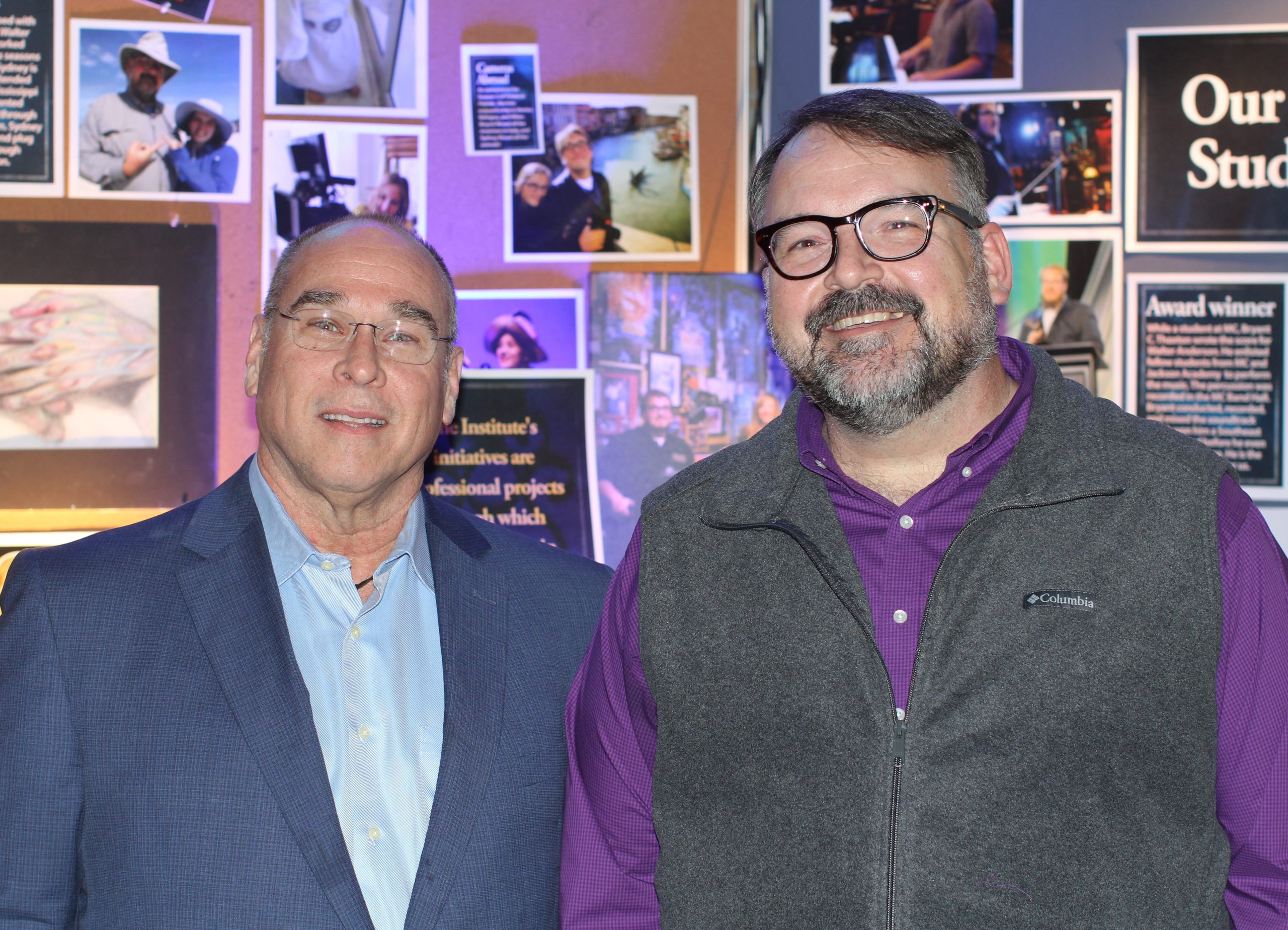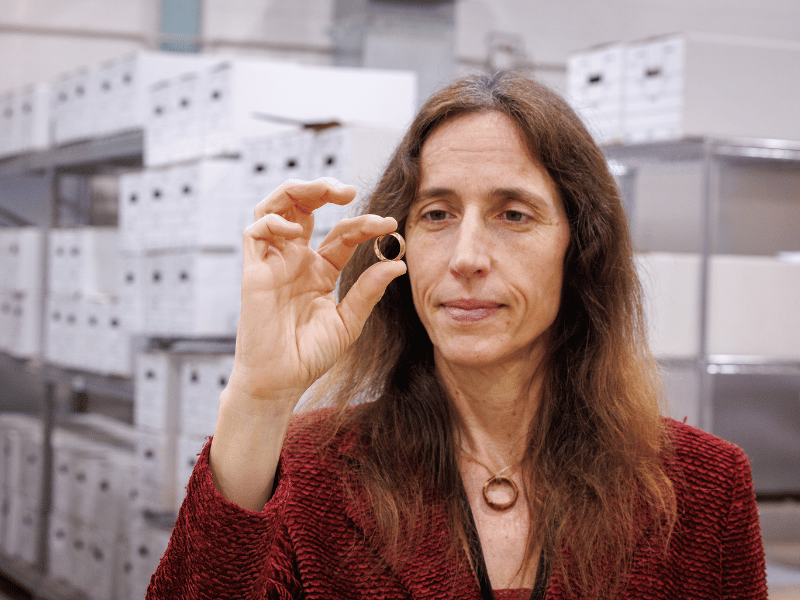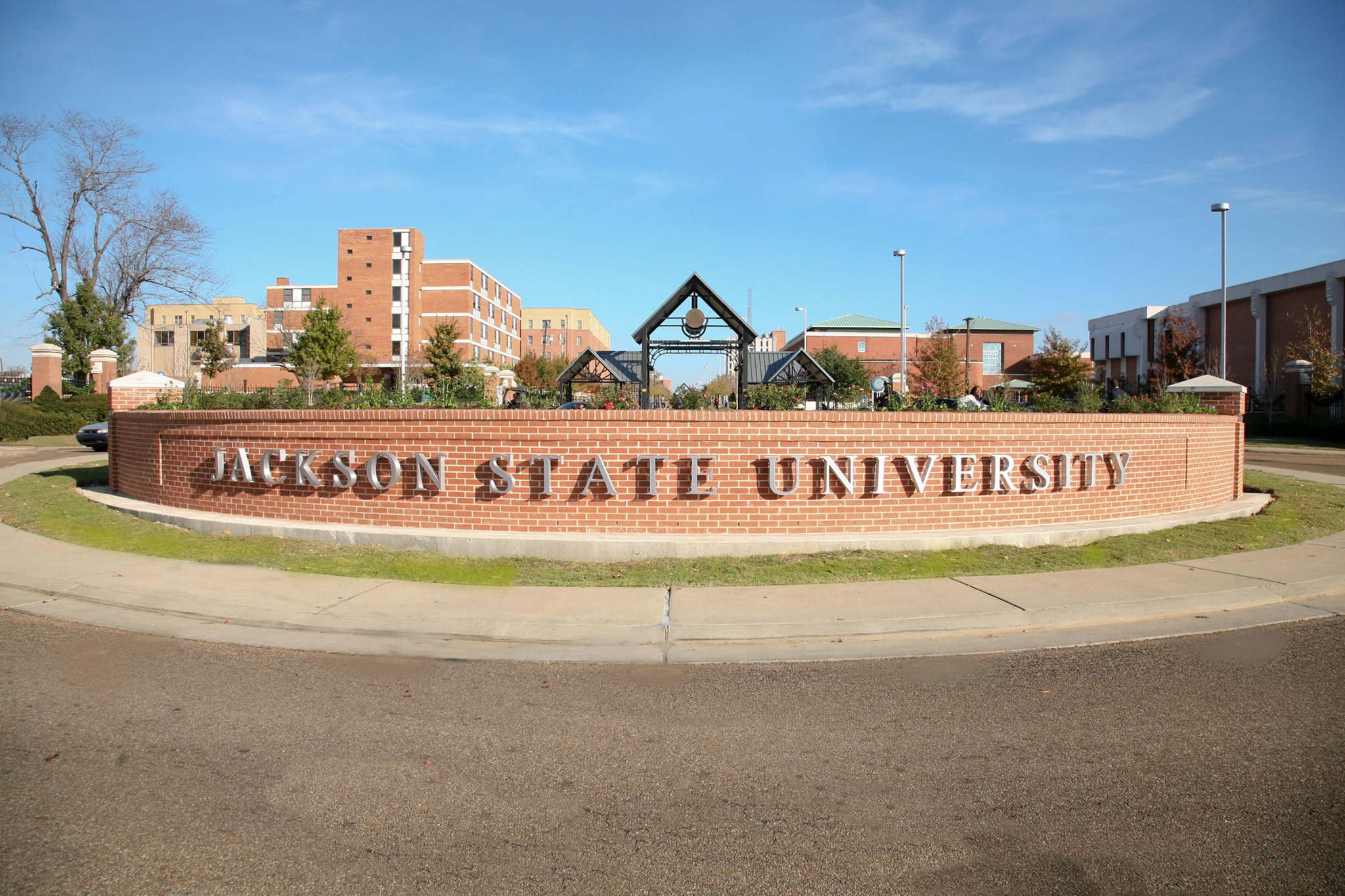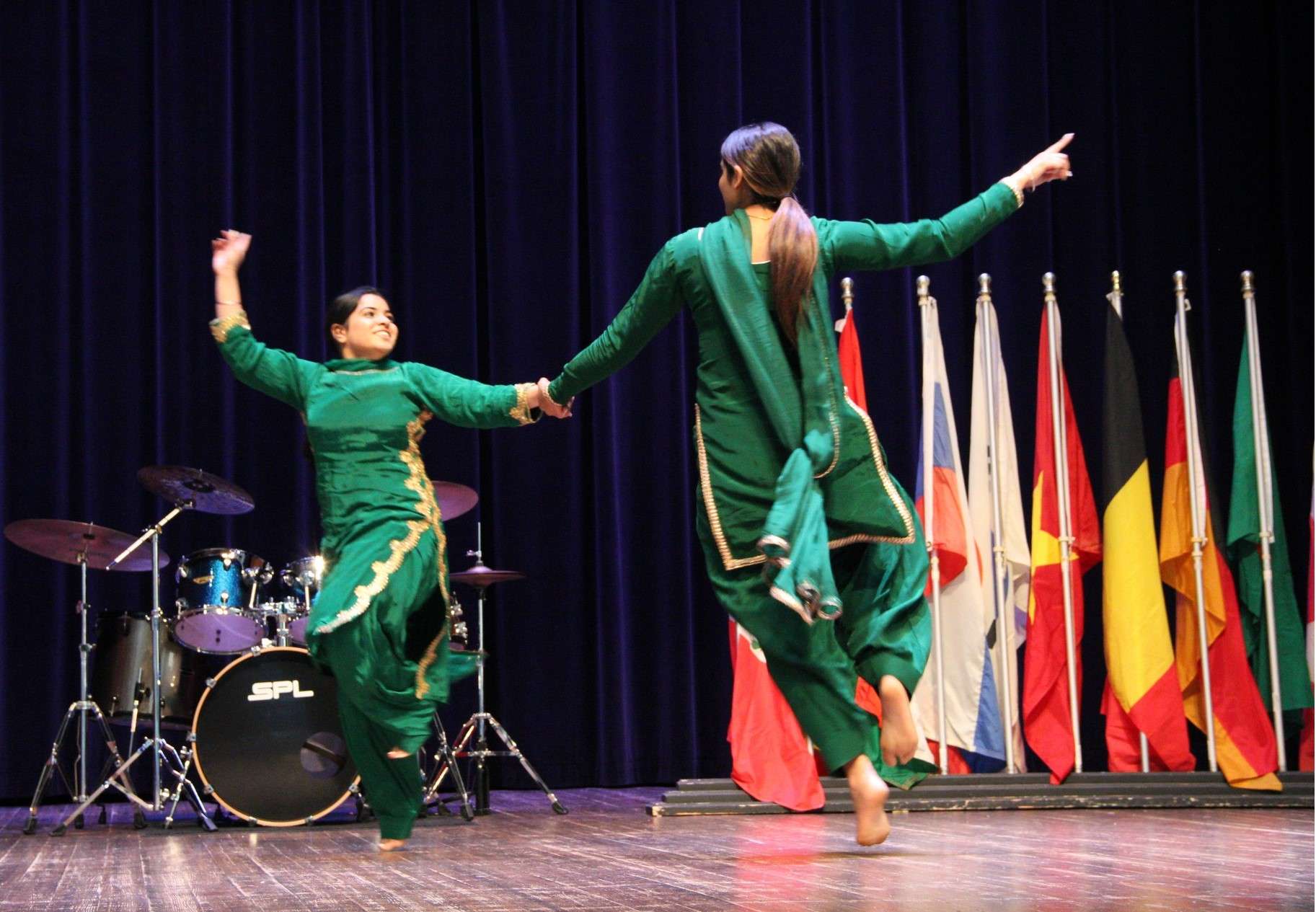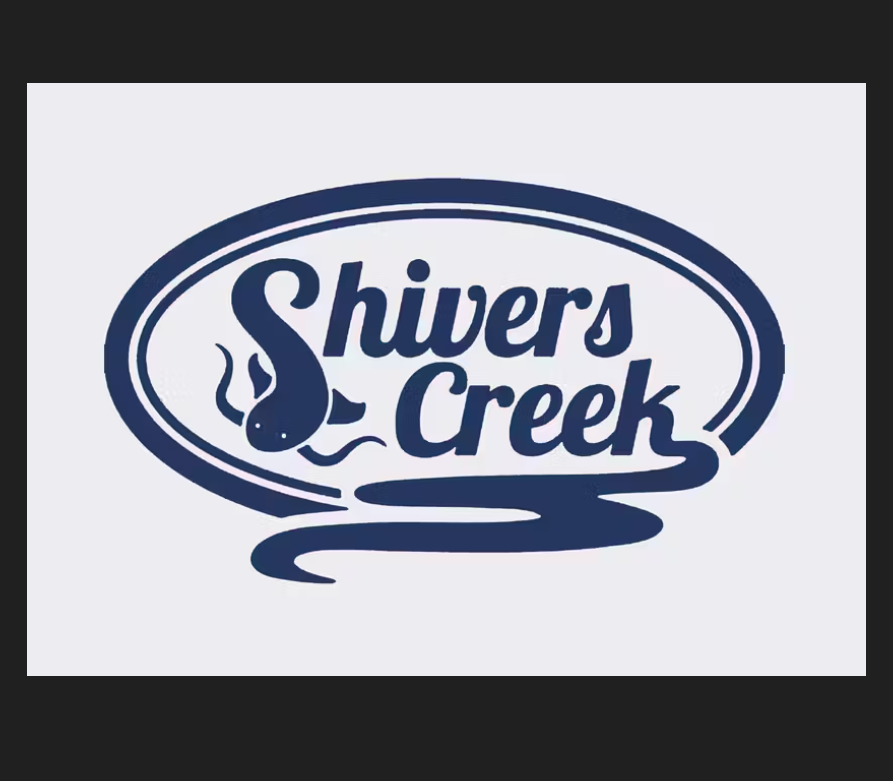As a boy, Anthony Thaxton’s passion for storytelling was ignited by a sprawling, action-packed summer blockbuster.
“Raiders of the Lost Ark,” directed by Steven Spielberg, captivated the future Mississippi College honors graduate and Southeast Emmy Award-winning filmmaker, television producer, artist, and writer. The movie inspired him to tell his own stories through a variety of mediums.
“It was such a wonderful film and is still my favorite,” Thaxton said. “It sparked within me the revelation that someone had told this story through film. It didn’t just happen. Someone had to make it, craft the adventure.
“I watched a ‘making of’ documentary on Spielberg’s process, and I was hooked.”
As a teenager, Thaxton emulated the legendary director, creating short films and employing family members to help make video parodies of pop culture stories. A member of the inaugural class at the Mississippi School for Math and Science, he took a Creative Media course under Jack Carter, who gave Thaxton his first public screening of a video he had produced.
“That gave me the confidence to continue telling stories,” he said.
Thaxton’s work drew the attention of Sam Gore, internationally celebrated artist and “Founding Father of the Mississippi College Art Department.
“He called and told me he believed I was supposed to be at Mississippi College,” Thaxton said. While flattered, Thaxton revealed that he had enrolled at another university and had already attended class for three days. Gore was unperturbed.
“He told me that I was going to skip class tomorrow and come to visit MC,” Thaxton said. “I did, then withdrew from the other college and enrolled in the Art Department.
“Dr. Gore didn’t make me choose between art and video production. He let me incorporate that into my art studies. He wasn’t teaching art – he was teaching me. He wanted the best for me in what I wanted to be and didn’t try to steer me into something else. I am eternally grateful for his influence.”
Now, Thaxton and his business partner, Robert St. John, a noted writer, restaurateur, filmmaker, and producer, are seeking to ignite the storytelling spark for generations of budding authors, documentarians, photographers, and artists through the Institute for Southern Storytelling at Mississippi College.
Along with Thaxton’s wife, Amy Bryant Thaxton, an MC graduate who serves as executive director of the Institute, the trio formally launched the initiative on March 7 as a flagship program of the Samuel Gore Arts Complex.
The Institute brings an interdisciplinary approach to storytelling through studying the Southern experience. Participants will collectively produce inspiring and instructive films, art, music, and writing, which will help others reflect on the South’s unique place and its larger role in the world.
Mississippi is known for its rich literary traditions, producing an impressive roster of internationally acclaimed storytellers, including William Faulkner, John Grisham, Donna Tartt, Jesmyn Ward, Eudora Welty, Tennessee Williams, and Richard Wright, among many others. The Institute for Southern Storytelling aims to contribute filmmakers and artists to that illustrious group.
“Storytelling is a broad term which, in our case, encompasses filmmaking, painting, writing, and music composition,” said Thaxton, who teaches illustration and watercolor classes at MC. “We are all born storytellers in the South. It’s in our blood. It’s who we are. We have a shared experience, shared struggles. We are in this together. And the funniest storytellers you’ll ever hear are from the South.”
He said the Institute’s mission is to develop filmmakers – storytellers who can help make sense of an ever-changing world through a Southern lens – who will showcase artists, musicians, actors, and writers with stories of hope and inspiration that have yet to be shared.
Just as Gore recognized storytelling as an art form worthy of pursuing, Randolph Miley, professor and chair of art at MC, envisions art as “visual communication.”
“In many ways, art is storytelling,” Miley said. “The visual connections between pictures, video, and print are unlimited. The arts become lenses, and what a dramatic view of the world we have! Recently, technology has opened another lens for students to view the world.
“The Institute for Southern Storytelling will offer students the opportunity to explore and share on another level. Students can now experience these connections and understand that their gifts in the arts spread far and wide. I am pleased to see the Institute housed in the Department of Art.”
The Institute represents a “homecoming” of sorts for Thaxton. The Gore Arts Complex once served as the Clinton Junior High School campus. As a senior at MC, he did student teaching with Marijane Whitfield there and was hired to teach art and video arts.
“I began my career here on this campus and in the very building where the Institute is to start, which was the CJHS Library and Resource Center,” said Thaxton, who credits Kenneth Quinn, Bob Dunaway, and Steve Cook, among others, for helping guide his undergraduate career at MC. “Now, I will be carrying on the work I started in my 20s when I filmed Dr. Gore sculpting in this building, when I filmed Wyatt Waters painting students.”
Thaxton hopes to attract partners to help provide the equipment needed to turn the facility into one of the premier studios in the state. Plans call for a large LED wall, a virtual studio with cinema line studio cameras, editing suites, and camera packages for students to make documentaries and short films. He will encourage MC faculty and the community to partner with the Institute to create films, promote art, and publish other works.
He said the Institute will give MC students a place to become apprentice filmmakers and storytellers with professional collaborators. As the Institute grows, students will have more resources to tell their own stories, primarily through documentary filmmaking. Faculty will participate in projects and serve as advisors and creative associates.
“As we begin, students will be able to submit their requests to do ‘Field Study’ with our program for credit,” he said. “Individual work may also give them credit in their other classes. In the future, we plan to develop a more structured course and apprenticeship opportunities in the professional projects Robert and I are bringing to the table.”
Among the projects the dynamic team of Thaxton and St. John will be producing through the Institute are a documentary and companion book on Welty; a documentary and companion book on William Dunlap, American artist, writer, and arts commentator; a documentary and companion book on Mississippi College as part of the Christian University’s upcoming bicentennial celebration; and the television series “Yonderlust” – featuring St. John’s travels throughout the world – for Mississippi Public Broadcasting.
Thaxton plans to identify and share uplifting stories through the talents of the Institute’s leadership team and the participation of MC students and faculty. He and St. John are selecting the initial projects, but an advisory board will help chart a focused path for the Institute. Faculty, students, and outside collaborators will be encouraged to submit ideas and projects.
“Robert St. John and I have worked together in various capacities for almost 20 years,” he said of his collaborator on the Southeast Emmy Award-winning documentary, “Walter Anderson: The Extraordinary Life and Art of the Islander.” “Robert is one of the biggest cheerleaders for Mississippi and the South. His books, life, and television series all celebrate the positive aspects of who we are and what this region has to offer.”
Thaxton hopes the Institute will bring attention to many of the stories Mississippi College has already developed.
“We have a legacy of telling important stories, but we’ve not seen those works widely distributed,” he said, citing films produced by the MC Department of Communication under Billy Lytal in the 1970s involving Shearwater Pottery and an interview with Welty on the Clinton campus. “Culturally, the Institute will put MC on the map in areas we’ve not previously been recognized.
“Some of the things Robert and I hope to bring to the Institute are our distribution partners, our connections, and our reach. The success of the Walter Anderson documentary on national PBS stations, awards, and critical response has encouraged us to partner with MC to add more positive and encouraging voices to our national conversations.
“We need good stories, and the Institute is going to help tell them.”
For more information about the Institute for Southern Storytelling at Mississippi College, click here or email storytelling@mc.edu. To contribute to the Institute, click here.


